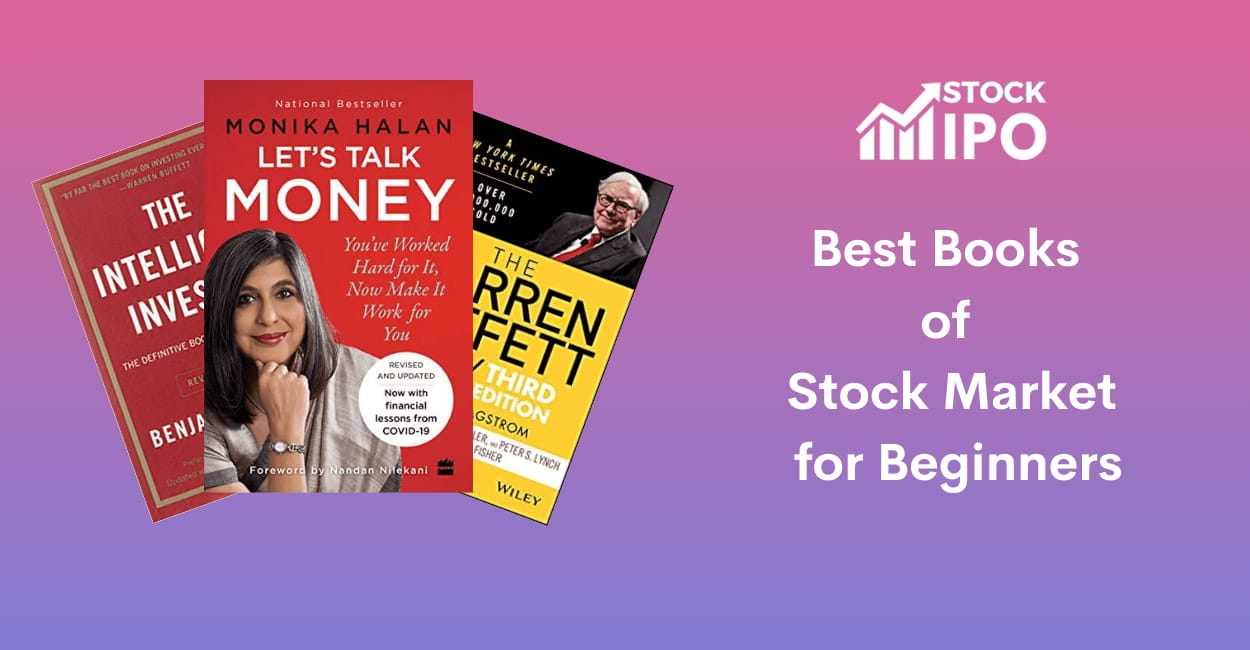If you are interested in investing, you should be well-versed in trading and the stock market. Agreed? Yes, you must be well-versed in market highs and lows. To do so, you must be a prudent investor. To make wise investments, you must first educate yourself about the Indian stock market. The first thing that comes to mind is, “How do I get started in stocks?” How can I become acquainted with the stock market? Right?
To be successful in the stock market, you do not have to mindlessly follow others. All you need is intelligence and knowledge.
Guys, today’s topic of discussion is great books for the Indian stock market.
This article is designed to teach you about the best books on the stock market.
Top Investment Books
Here are the top 10 books for beginners to start with.
1. The Intelligent Investor by Benjamin Graham
The Intelligent Investor is a comprehensive guide to investing in various financial markets and numerous income-generating instruments.
Warren Buffet is a great fan of this book, which has been dubbed the “ultimate investing bible” by many. It is advised for those who are new to investing or have some prior expertise.
2. Rich Dad, Poor Dad by Robert T Kiyosaki
Rich Dad, Poor Dad is about as basic as it gets, and it includes Robert Kiyosaki’s famous description of the distinction between a liability and an asset.
Some of the great teachings:
- Don’t be controlled by emotions when it comes to money: Most working-class people are ruled by two emotions: fear and greed. They are afraid of becoming poor since they are working long hours and not seeing any change in their quality of life. The other is greed, in which people want to get rich quickly by winning the lottery or gambling with their money
- Invest in Yourself First: Before everything else, you must invest in your own financial education. “The biggest investment you can make is in yourself,” Robert Kiyosaki’s wealthy father would say. By investing in yourself, you are developing your human capital, which is your most valuable asset.
- The Little Book that still beat the market by Joel Greenbalt
“The Little Book That Still Beats the Market” is an updated edition of Joel Greenblatt’s “The Little Book That Beats the Market,” which was published in 2005 and sold over 300,000 copies. It teaches ambitious investors how to routinely outperform market averages by following the author’s basic method of buying stocks at rock-bottom prices.
However, a formula is only as good as the instruments you use to put it into action.
3. If You Can: How Millennials Can Get Rich Slowly by William J. Bernstein
If you’re short on time and value simplicity, William Bernstein’s investing primer will not disappoint.
The method outlined by Bernstein in If You Can is so simple that even a 7-year-old could execute it. It doesn’t take long to learn about it or to put it to use. Bernstein explains that the entire procedure takes only 15 minutes per year and has been demonstrated to outperform 90% of financial professionals in the long run.
4. Unshakeable by Tony Robbins
Tony Robbins presents a full step-by-step method for becoming financially secure and free in Unshakeable. You can follow these actions whether you are an employee, self-employed, or a business owner.
He discusses diversification, avoiding panic, when to buy, when to sell, what to invest in, and so on. Through conversations with over 50 successful financial experts, Tony Robbins teaches us how to flourish in a bear market and overcome the difficulty that many investors face: anxiety.
5. A Random Walk Down Wall Street by Burton G. Bulkiel
After all, Burton G. Malkiel’s “A Random Walk Down Wall Street” is now in its 12th edition and has sold over a million copies worldwide. It explains all key investment vehicles, including stocks and bonds, real estate investment trusts, and tangible assets. A new chapter in the revised version focuses on behavioral finance, or how our emotions influence our financial behavior and investment methods. Malkiel is the author of several books, including “From Wall Street to the Great Wall” and “The Random Walk Guide to Investing.”
6. The Millionaire Next Door by Thomas J. Stanley
The Millionaire Next Door demonstrates that with a strict budget and a desire to improve their financial life, anyone can become affluent over time. What we need is for more people to invest for their future, regardless of their financial goals. Not because of the detailed, intellectual debate regarding fees, expense ratios, historical dividend payout, or performance, do I nominate this book as the best book for this survey.
7. The Simple Path to Wealth by J.L. Collins
If you’ve ever wished your parents had taught you more about money, the financial markets, and how they function, JL Collins’ “The Simple Path to Wealth” is the book for you. This book began as a compilation of letters to the author’s daughter but has since evolved into a thorough financial handbook.
8. Psychology of Money by Morgan Housel
Money management isn’t as mathematical as you may think. Most financial decisions are made by people, not spreadsheets, and individuals have emotions, prejudices, and unique perspectives on the world. These emotions and opinions can distort people’s comprehension of finance and eventually stand in the way of long-term success for investors.
9. The BogleHeads’ Guide to Investing by John C. Bogle
The Bogleheads’ Guide assumes no prior financial expertise. In fact, its writers advocate a blank slate to avoid any assumed biases.
10. Technical Analysis by John Murphy
Murphy covers the fundamentals of analyzing stock charts and understanding technical indicators. Murphy’s earlier best-seller, Technical Analysis of Futures Markets, is expanded in this book. As a result, Technical Analysis of Financial Markets continues to emphasize futures, but not at the expense of covering the entire financial markets.
What more could a first-time investor want?
The book will walk you through all you need to know to develop your own index-heavy strategy. It accomplishes this without overcomplicating the situation or employing obscure jargon.
Conclusion
In order to make a footprint in the field of stock market investing, one should take the time to read books about the stock market. Many of these books are published by specialists like fund managers and billionaires. Learning from specialists is the most effective strategy to advance your knowledge and expand your stock portfolio.
Greenblatt and his colleagues created Magic Formula Investing(opens in new tab), a free resource for readers that does the arithmetic and gathers the data.







